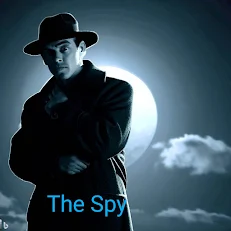Gordievsky was born 10 October 1938. As he rose in the KGB hierarchy, his brilliant intelligence and courage provided Britain and her allies with a cornucopia of news and information about the soviet regime's inner workings, fears, and plans between 1974 and 1985. Ironically, some of Gordievesky's revelations may have served both sides well by averting catastrophic and destructive responses to misperceived political rhetoric and general warmongering.
In addition to the big picture, Macintyre helps us understand the emotional toll of spying on the spies, their families, and their handlers. Although the outcome of Gordievsky's fate is known by those of us who lived during the Cold War news cycle, we can still feel the edge-of-the-seat drama when Gordievesky's tortuous interrogation begins.

“There is no such thing as a former KGB man.”
Vladimir Putin, p. 8
--
He also learned to compartmentalize. in different ways, his father, mother, and grandmother were all people in disguise.
p. 9
--
Fear of authority was instinctive, the habit of obedience ingrained.
p. 15
--
p.16
Soviet and western intelligence services used the same method for choosing a pseudonym—it should be close to the real name, with the same initial letter, because that way if a person addressed you by your real name, someone who only knew you by your spy name might well assume he or she had misheard. P.18
--
Pavel Sudoplatov, one of Stalin's spy masters, had this advice regarding what to look for in people when his officers were seeking to recruit spies in Western countries: “hurt by fate or nature—the ugly, those suffering from an inferiority complex, craving power and influence but defeated by unfavourable circumstances.... In cooperation with us, all of these find a peculiar compensation. The sense of belonging to an influential and powerful organisation will give them a feeling of superiority over the handsome and prosperous people around them.” For many years, the KGB used the acronym MICE to identify the four mainsprings of spying: Money, Ideology, Coercion, and Ego.
p. 61
Geoffrey W. Sutton, PhD is Emeritus Professor of Psychology. He retired from a clinical practice and was credentialed in clinical neuropsychology and psychopharmacology. His website is www.suttong.com
See Geoffrey Sutton’s books on AMAZON or GOOGLE STORE
Follow on FACEBOOK Geoff W. Sutton
TWITTER @Geoff.W.Sutton
You can read many published articles at no charge:
Academia Geoff W Sutton ResearchGate Geoffrey W Sutton


Comments
Post a Comment